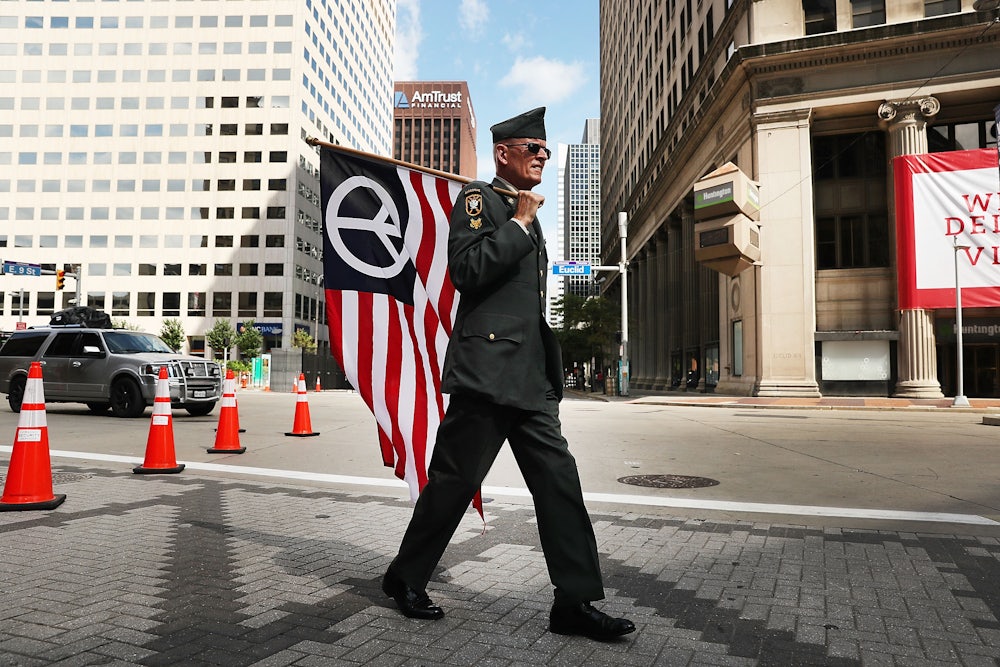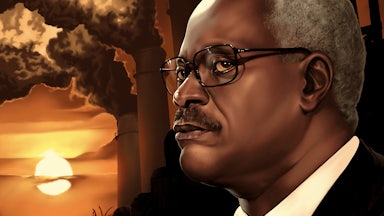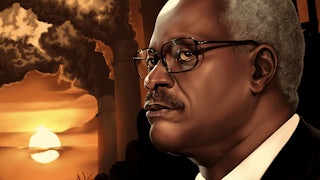In 2009, John Kerry, then the chairman of the Senate Committee on Foreign Relations, invited a panel of post-9/11 veterans to testify on the shaky status of the war in Afghanistan. Four decades earlier, as a leader in Vietnam Veterans Against the War, an indignant Kerry had testified before the same committee, deriding Washington for blindly creating “a monster in the form of millions of men who have been taught to deal and to trade in violence, and who are given the chance to die for the biggest nothing in history.” Now, as he gaveled in the hearing, Kerry’s mind was again on Vietnam. He noted striking resemblances between the wars—an elusive insurgency force, a weak central government, a devastating civilian toll, and broken promises—and warned, “We ignore those similarities at our peril.”
One of the panelists that day was former Marine Corps rifleman Richard Reyes, who, like Kerry, had received the Purple Heart. Reyes railed against the war and pleaded for an end to the occupation. He spoke of detaining and nearly killing a suspected Taliban member who turned out to be innocent, an Afghan father snatched up and assaulted on a routine milk run for his kids. “We began to feel we were chasing ghosts, fighting an enemy that we could not see or that didn’t allow itself to be seen,” he said. “It all stopped making sense.” Reyes argued that the American occupation was radicalizing civilians, and urged caution in imposing Western beliefs on Afghan culture. “I was forced to become a tyrant,” he said.
Now, as the American military hastily and heartlessly exits Afghanistan, many veterans are mentally grappling with what this war means, and how it will be remembered. In covering their plight, the media has highlighted a diversity of voices—but overemphasized a rare and largely unfounded perspective, namely that the Pentagon has prematurely surrendered. “We’re trying to leave before it’s done,” one veteran told The Durango Herald, a Colorado newspaper. “Now that it’s gotten hard, we’re just going to bounce?” another asked The Washington Post. A third acknowledged to The Los Angeles Times that the war has been costly and complicated. “But I also wonder,” he added, “could we have stayed longer and done more?”
As a plethora of polling makes clear, most veterans would say no. Rather than wishing for more conflict, many are lamenting the years of gratuitous pain and suffering. Adam Stump, an Afghanistan veteran, said the dozens of fellow vets he’s communicated with in recent days are upset not that we are leaving the country, but rather that we remained there so long. “There’s a real feeling of, ‘Why wasn’t it 10 years ago?’” he said.
Twelve years ago, Reyes hoped that his remarks might help push change. But no lawmakers followed up, and no meaningful steps were taken. The war machine kept running, fueled by ignorance and lies. Hours after Kabul fell to the Taliban, I caught Reyes on the phone. “These politicians have their generals, they have their subject matter experts. But everything they’ve predicted has been wrong, it’s gone the other way,” he said. “I hate to say it—I know I may sound like a kid—but this was the biggest ‘I told you so’ ever.”
“History proves that soldiers on the ground have an intimate knowledge that is vital to their commanders and to us as policymakers,” Kerry said at that 2009 hearing. And yet in this and other conflicts, service members’ pleas for peace were largely disregarded, perhaps because their words contained uncomfortable truths.
Sometimes, however, their messages broke through. Howard Zinn, a World War II bombardier, largely reoriented the public’s perception of America by exposing its dark imperial underbelly. Two other veterans—Daniel Ellsberg and Daniel Hale—leaked the Pentagon Papers and Drone Papers, respectively, unearthing a litany of military lies. There were also the two Winter Soldier events, during which Vietnam veterans and, decades later, those from the post-9/11 era publicly revealed American war crimes.
For years we’ve seen veterans on presidential debate stages urging peace, among them Jim Webb, Mike Gravel, and Tulsi Gabbard. There are thousands more working in the Veterans for Peace movement, which, in addition to its activism, has built freshwater treatment plants in Iraq, countered military recruiting tactics in high schools, and helped evacuate wounded children from war-torn Bosnia.
These veterans have long been stifled by politicians and generals who, sometimes with the financial backing of military contractors, have misled the public in pushing for prolonged combat. Danny Sjursen, an Army veteran of Iraq and Afghanistan turned academic firebrand, hopes to remedy this problem through the Eisenhower Media Network, which pitches progressive military voices to major news outlets. “These channels have their favorite insider analysts, two- and three-star generals and civilian hawks who have been wrong about every single foreign policy decision,” Sjursen told me. “Max Boot still has a column at The Washington Post, and he’s never been right.”
Had veteran voices like Sjursen’s been elevated sooner, it’s possible that the war may have ended earlier. After all, our exit from Afghanistan was driven in large part by a coalition of antiwar vets—both conservatives and liberals—who, after long being shut out of the discussion, have received much positive press and a warm welcome on Capitol Hill in recent years.
These post-9/11 vets should have been given a proper hearing 10 years ago, when a third of them felt the wars in Iraq and Afghanistan were not worth fighting. By 2019, a majority of former service members held these beliefs. Despite these clear majorities, some journalists are still spinning what Sjursen describes as a “fallacious, pro-interventionist media narrative that says, ‘Because we bled there, we have to stay there.’” CNN recently applied this framing in an interview with Kelly McHugh-Stewart, whose father was killed in Kabul in 2010. While she made clear in her comments that the war was unjustified and made no sense, a network chyron later spliced a short quote of hers to suggest that the withdrawal meant Gold Star families like hers “will never get closure.” McHugh-Stewart later tweeted that “‘closure’ is being taken out of context. Closure, to me, would have been ending the war long ago.”
When Osama bin Laden was killed in 2011, Adam Stump was on a midtour break. He felt the mission had been accomplished. “I remember being home and sending an email saying, ‘We got him! Do I need to come back?’ And I was told, ‘Well, yeah, we are going to continue on our mission.’”
Brittany Ramos DeBarros was one of the many bright-eyed recruits sold on an Afghanistan mission that involved building infrastructure, securing democracy, and empowering women. Yet shortly after touching down in 2012, she realized that “we were doing more harm than good.” “I am angry that our leaders knowingly lied to us,” said DeBarros, the organizing director of the antiwar group About Face and a congressional candidate in Staten Island. “I’m angry that I deployed thinking I was going to help, only to be used and betrayed by the people I served. It doesn’t make me feel better to cover that up. I want leaders to be held accountable. I don’t think leaning on comfortable lies helps anyone.”
Throughout his career, President Joe Biden has embraced many military lies, including in defensive remarks Monday when he contended that Kabul fell because the Afghan people had no will to fight. Yet it seems that, at least more than other politicians, he’s listened to the stories of service members, including his late son, Beau. “I’ve met with the people, I’ve spoken to the leaders, I’ve spent time with our troops, and I came to understand firsthand what was and was not possible in Afghanistan,” he said on Monday. “So now we’re focused on what is possible.”
An orderly withdrawal that involved rescuing thousands of Afghan allies, interpreters, and refugees was certainly possible. For months, veterans have built lists of these people, circulated them to the administration, and raised early warnings about the slow processing of visas. In typical fashion, the government ignored their emails, thereby ensuring a failure even greater than Vietnam, where we managed to resettle 130,000 refugees.
“We learned nothing from Vietnam,” Jack Robbins, a former Marine infantry officer in Afghanistan, recently told NBC News. “The ‘best and brightest’ betrayed the American promise yet again and perhaps converted more to jihad in the last week than bin Laden did in a lifetime. Listen to the infantryman.”








